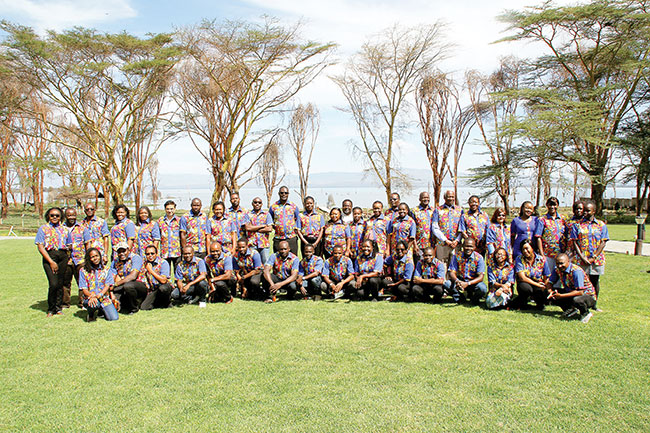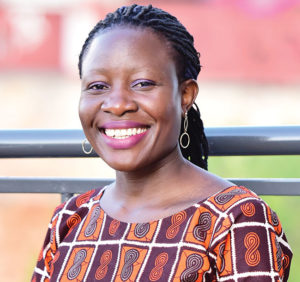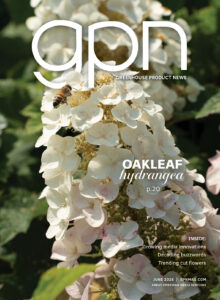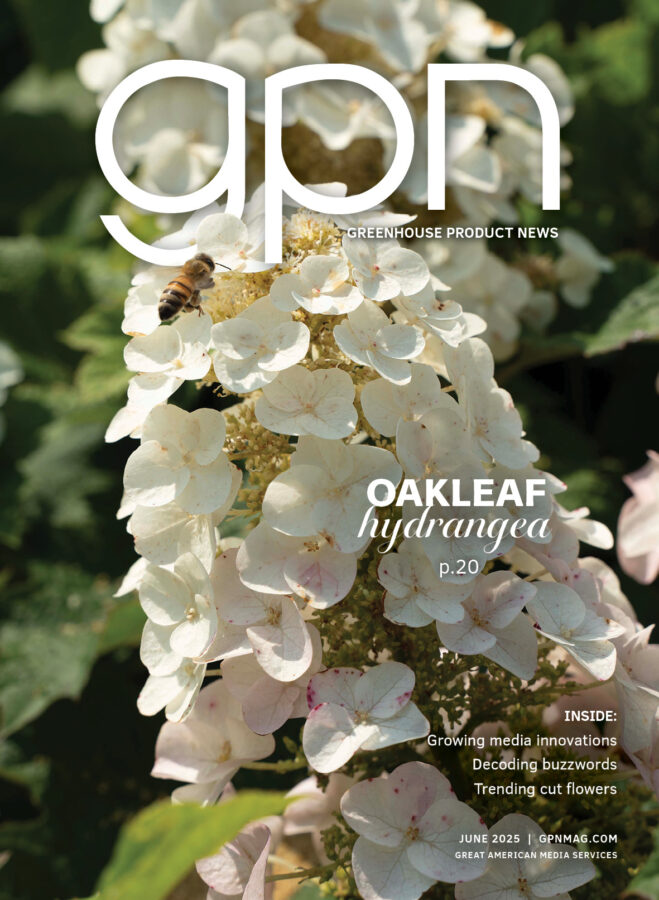
Global Biotechnology Policy: Extend Africa the Courtesy to Decide for Herself
My guest today is Patricia Nanteza. We recently met electronically after I heard the former director of the Alliance for Science, based at the Boyce Thompson Institute on the Cornell University campus, speak at a biotechnology seminar. She shared a story of one Alliance fellow who made a heart- felt request to the international community. While immersed in the Alliance’s Global Leadership Fellows Program, Patricia, a young woman from Uganda, expressed a passionate plea to our global community on the topic of agricultural biotechnology: Please let Africa decide for herself; don’t decide for her.
Peter: Thank you for joining me today Patricia. Your passionate statement became our title. Tell us more about yourself and the path you are walking.
 Patricia: Hi Peter, it’s a great honor to speak with you and your audience today. I am a science communicator and lover of agricultural technology because I have seen first-hand what its adoption can do for farmers and their families. I advocate access to improved technologies and am a proponent of choice. In short, my heart beats for access, choice and the African farmers. I work with the Alliance for Science as the Africa training director.
Patricia: Hi Peter, it’s a great honor to speak with you and your audience today. I am a science communicator and lover of agricultural technology because I have seen first-hand what its adoption can do for farmers and their families. I advocate access to improved technologies and am a proponent of choice. In short, my heart beats for access, choice and the African farmers. I work with the Alliance for Science as the Africa training director.
Peter: I’m excited to have a conversation with you about agriculture on an international level, specific to small farmers. Learning is contagious, and whether grower education is called outreach, cooperative extension or something altogether different, its mission is the same. You are graciously teaching me about subsistence farm life in Africa.
Tell us more about how your Alliance for Science experience has offered you a platform to help the world better understand the African farmer’s challenges. I understand that the program offered you an opportunity as a visiting fellow that has grown into your current position that allows you to contribute to agriculture at its heart, helping to educate small farmers in Sub-Saharan Africa.
Patricia: Yes, Peter, Sub-Saharan Africa is our area of operation. I visited Cornell University in 2015 as part of the inaugural cohort of fellows under the Alliance for Science (AFS). AFS was under Cornell at that time, but we have now moved to the Boyce Thompson Institute.
The fellowship exposed us to agricultural biotechnology — its science, benefits, myths and communication. I was already working on a biotech project back home in Uganda, so I wasn’t too green about this technology and the difficulty of communicating it.
After the training, I went back to my communication specialist job focusing on vitamin A-enhanced bananas in Uganda. A few years down the road, AFS took me on as a trainer, then as lead trainer, and now as leader of our Africa office. Over the years, AFS has trained almost 300 enthusiastic young people from across the globe, mainly from Africa and Asia.
Peter: Congratulations on your work to establish an African office for AFS. That effort in itself must be making the world a lot smaller regarding information and technology transfer for your small farmers. I always learn when interacting with fellow farmers and greenhouse operators, and I have promised myself that should the day arrive when I no longer learn as much from growers as I teach, my career relevancy will have passed.
I’m grateful to learn from you today because my experience has been limited to North America. Let’s compare and contrast small farm operations here in the U.S. with small farms in Africa by calling on our respective experiences. Your perspective is more complete than mine, as you have seen U.S. agriculture during your fellowship at AFS. Specifically, tell us about Uganda, where you grew up and where your family lives, and Kenya, where you are currently based.
Patricia: Through the Alliance, I have had the good fortune of visiting small family farms in the U.S. — Iowa and upstate New York — and meeting farmers from South America and Europe. What you people call “small” is mega in Africa. On average, a smallholder farmer in Africa has one to five acres of land, and on it they practice mixed farming (i.e., a few chickens, goats, cows, and major food and cash crops in their regions).
S/he has no mechanization — only a hoe and panga, what you call a machete, as well as manure from their livestock, and they generally replant seed from previous harvests. However, with more research and outreach, a few are starting to use fertilizer and improved seeds. Research shows this coverage is at 30%.
Peter: Your mention of a hoe takes me back to my youth on my family’s small (for us) vegetable farm. One’s hoe was practically an extension of one’s arms. Here in New England many of our soils are full of rocks and stones of all sizes. After a couple years using a hoe, the working edge would get worn down and blunted from all the rock contact. It was only when a new hoe was purchased and placed next to an old one that the significant wear was noticeable.
You wrote an article on today’s topic whose message has impacted me to my core. Please share your knowledge and perspective on this controversial topic with our readers regarding biotechnology, the world community and African farmers’ interests.
Patricia: During my fellowship at Cornell, I was exposed to the global conversation around biotechnology. It is an extremely polarized conversation — one is either for or against it. However, what baffled me was that the people who were against biotechnology wanted everyone to be against it and would go to great lengths to block access to the technology.
My question was: Who gave them the authority to speak on everyone’s behalf? One person actually suggested that Ugandans don’t need bananas that are resistant to Banana Xanthomonas Wilt (BXW). “If BXW is destroying their bananas, let me eat squash.” The nerve! As a banana- eating Ugandan I wondered, “What is squash? And who told this person that they can decide for us what to grow and eat or not?”
Peter: One description that sent shivers down my spine actually haunts me. During that 2020 presentation, the former director, sharing your voice, spoke of the North American and European home gardener standing in a pristine backyard vegetable garden laid out in neat rows with manicured perimeter. Some even have borders of flowering annuals and perennials and many have this garden within a beach ball’s toss of an in-ground swimming pool.
This gardener often stands by the garden with a designer cup of coffee or other exotic drink and assumes this is gardening, this is farming … across the world. This gardener and consumer also has decided that GMOs are universally bad for the planet and stands against their implementation anywhere for any reason. Am I painting the picture you have experienced?
Patricia: Sadly, I also noted that these people in their faraway countries didn’t even care to know our culture or preferences. They just didn’t care for us as people. They cared about their “superior” ideals and forcing them onto everyone.
That is the moment when the African advocate in me was awakened. We need to raise our voices internationally so that choices are not made for us. Thankfully, the pro-biotech side at least had the decency to study our challenges and work with local researchers to come up with appropriate solutions, and the advocates strived to give us an international platform to air our views about this technology. This is what the Alliance strives to do.
As I mentioned earlier, my heart beats for choice and access. I am not against a sovereign nation that says no to biotechnology if evidence shows they do not need it. I am against countries being forced to decline technology in ignorance. Just because country X wants organic, everyone else should. No way! In simple language, that is being a bully, and we shall not allow being bullied. Lay out all the choices, and based on what challenges countries face, they should be free to choose from a suite of solutions.
Peter: There’s another layer to this topic, Patricia — a deeply ethical one. Developed countries are beginning to acknowledge that many underdeveloped countries practicing subsistence agriculture are suffering from unstable growing conditions resulting from global climate change. A reciprocal take on the debate about a country’s autonomy is that, while it is common knowledge that these countries minimally contribute to causing the climate crisis, they are often experiencing the most severe consequences. This outcome should bother the rest of the world, particularly those countries contributing most to climate change.
At a more specific level, tell us about one application of biotechnology that the world may not be in favor of, yet having access to it is a big deal for a small African farmer. You mentioned leveraging vitamin A-enhanced bananas; tell us about another that makes this subsistence farmer more productive.
Patricia: Any herbicide-tolerant variety. Unless you operate at a small scale in a developing world country, you will surely not understand how backbreaking weeding is. Unfortunately, this is a role that is left for women generally, and yet they are already burdened by other backbreaking activities such as fetching water from a well or borehole that is usually far from home or fetching firewood to make food for the family while bent over a low cooking area. And all this with an infant strapped to their back.
Peter: I am grateful for today’s opportunity to begin discussing this important topic, Patricia. I want to thank you for sharing a view of agriculture that I have been ignorant of and unable to acknowledge until now. Understanding your passionate request to “Let Africa decide for herself” has changed me. I hope I can become a worthy advocate. Guided by science, the world community will be better equipped to solve global challenges if we show respect for and make the effort to do the hard work to understand one another. As the world gets smaller, may our hearts get larger.
Patricia: Thank you, Peter, for giving me and, by extension, Sub-Saharan Africa, an opportunity to reach a wider audience through your column.
ABOVE PHOTO: Patricia Nanteza recently led an Alliance for Science course in Kenya to teach scientists and others how to communicate effectively about agricultural gene editing.









 Video Library
Video Library 


















